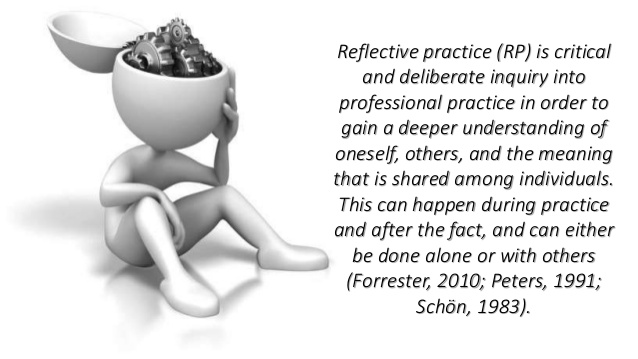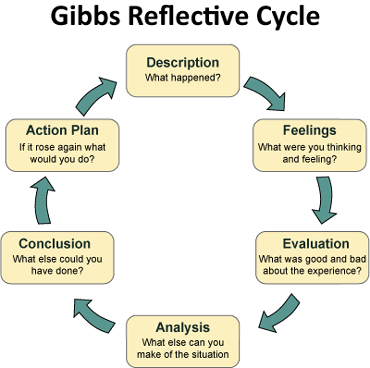Are We Eating Our Young? Professional Development in the TESOL Profession
Written by Dr. David E. Shaffer
Teaching is an exceptionally demanding profession, and an underappreciated one. Teaching a foreign language adds to the degree of difficulty. And being an EFL teacher working in a foreign land places another layer of difficulty on top of the already high hurdles. Such is the situation of many EFL (English as a foreign language) teachers in Korea: Teaching ain’t easy!
Language teachers often find that they are feeling all alone, surrounded with teaching problems, but with no path to solutions. They become frustrated, disheartened with their situation, and disenchanted with their occupation, prompting a considerably large number to leave the profession in their first three years of teaching.[1] This has lead Dr. Thomas Farrell to label TESOL (Teaching English to Speakers of Other Languages) as “a profession that eats its young.”[2] Farrell was calling for drastic improvements in the pre-service training that ESL (English as a second language) and EFL teachers normally receive with regard to the realities of the classroom. And by the way, he knows what he is talking about, having spent 18 years of his early career teaching EFL in Seoul.
Farrell’s suggestion of at least a partial solution to the “eating of the young ones” syndrome was to make training in reflective practice a significant part of pre-service training. This can be very helpful for the teacher-to-be, but too late for the teacher-already-there in the classroom. Reflective practice (RP) is, however, available for any teacher to use. One of the early proponents of RP in education, Donald Schön, defined it as the practice by which professionals become aware of their implicit knowledge base and learn from their experience.[3] But before we discuss more about what RP is, let us look at what it is not.

What Reflective Practice Ain’t
Because it is named “reflective” practice, it is easy to regard RP to be simply thinking about the teaching we have done. But it ain’t. RP is something that we learn from. RP ain’t going to the teachers’ lounge after class to complain with colleagues about your students. And it ain’t going to the local bar after school to grumble with other teachers about your school and its students. Encounters such as these invariably produce little in the way of appreciative results. To be reflective, the “thinking” needs to be carried out in a systematic manner. Simply walking out of class and thinking to oneself, “That lesson bombed; I’m not going to do that again!” isn’t very reflective.
What Can Be Done?
It would be great if all EFL teachers had pre-service training that included a good dose of RP; unfortunately, that ain’t the case. It would also be very helpful if our educational institutions would provide frequent or intensive in-service workshops and other training on relevant topics; but the budgets of many institutions do not allow for that either. So what can the EFL teacher do, other than stand around and wait to be eaten alive?! Gabriel Diaz Maggioli has for years been advancing a very practical and effective solution. While pre-service and in-service training have their merits, they are top-down structures that do not include teachers in their planning phase. Maggioli promotes the formation of “learning communities,” front-line teachers forming bottom-up, teacher support groups.[4] RP is often a main focus of such learning communities.

Gibbs’ Reflective Cycle
Graham Gibbs has devised a “reflective cycle” that can be used quite effectively in many professions, including TESOL, to reflect on one’s practice.[5] It is a six-step, recursive cycle in which one first (a) describes in detail the situation in question, (b) considers their own thoughts and feelings about the situation, (c) evaluates what was positive and negative about the experience, (d) analyzes the experience more deeply, (e) makes conclusions on alternative ways that the situation could have been handled, and (f) selects one of the alternatives/adjustments to put into practice the next time the opportunity arises. Once the alternative is tried, the cycle is repeated.
Don’t Wait to Be Dinner
Armed with the knowledge of an RP method and of bottom-up learning communities, do we still just wait to be eaten alive? A good idea it ain’t. It is much more desirable to take the advice of Anna Loseva to self-initiate teacher support.[6] Be proactive and create your own learning community. Seek out like-minded educators interested in peer support and meet regularly. Meetings may have a pre-determined topic with a facilitator, or they may be open to discuss topics that the participants bring to the meeting. In addition to its regular monthly workshops, Gwangju-Jeonnam KOTESOL has a morning RP session on a set topic – a format that this group much enjoys.
Reflection is also something that the EFL teacher can do at home alone. Just work your way through the thought process of Gibbs’ Reflective Cycle, or better yet, do this in writing by keeping an RP teaching journal. The TESOL profession need not be homnivorous; protect yourself with reflective practice and develop professionally.
References
- den Brok, P., Wubbels, T., & van Tartwijk, J. (2017). Exploring beginning teachers’ attrition in the Netherlands. Teachers and Teaching: Theory and Practice, 23(8), 881–895. doi:10.1080/13540602.2017.1360859
- Farrell, T. S. C. (2016). TESOL, a profession that eats its young! The importance of reflective practice in language teacher education. Iranian Journal of Language Teacher Research, 4(3), 97–107.
- Schön, D. A. (1983). The reflective practitioner: How professionals think in action. New York, NY: Basic Books.
- Diaz Maggioli, G. (2017, April). Plenary session by Gabriel Diaz Maggioli: IATEFL online – Glasgow 2017 [Video file]. Retrieved from https://iatefl.britishcouncil.org/2017/plenary/empowering-teachers
- Gibbs, G. (1988). Learning by doing: A guide to teaching and learning methods. Oxford, UK: Oxford Brookes University Further Education Unit.
- Loseva, A. (2019, April 14). Self-initiated teacher support: Owning your professional development [Web log post]. Retrieved from https://annloseva.wordpress.com/2019/04/14/self-initiated-teacher-support-owning-your-professional-development-1-3/
Forrester, D. (2010). Playing with fire or rediscovering fire: The
perils and potential for evidence-based practice in child and
family social work. In P. Ayre & M. Preston-Shoot (Eds.),
Children services at the crossroads: A critical evaluation of
contemporary policy for practice. Plymouth, UK: Russell
House.
Peters, J. M. (1991). Strategies for reflective practice. New
Directions for Adult and Continuing Education, 51, 89–96.
The Author
David Shaffer is vice-president of the Gwangju-Jeonnam Chapter of Korea TESOL (KOTESOL). On behalf of the chapter, he invites you to participate in the teacher development workshops at their monthly meetings (always on a Saturday). For many years, Dr. Shaffer has been a professor of English Language at Chosun University. He is a long-time member of KOTESOL and a holder of various KOTESOL positions; he is presently national president. Dr. Shaffer credits KOTESOL for much of his professional development in English language teaching, scholarship, and leadership. He encourages you to get involved. He is board chair at the GIC and also editor-in-chief of the Gwangju News.





People in every profession may need to have “Reflective Practice” for the sake of professional development.